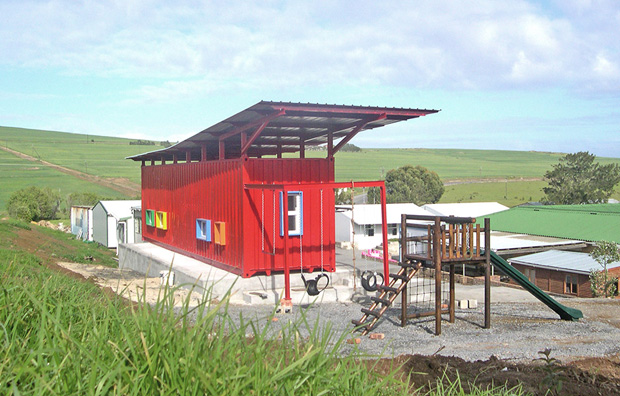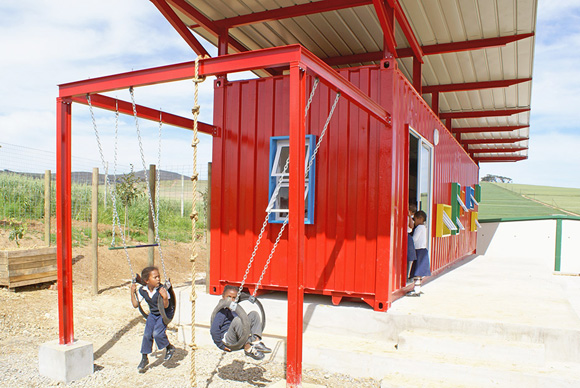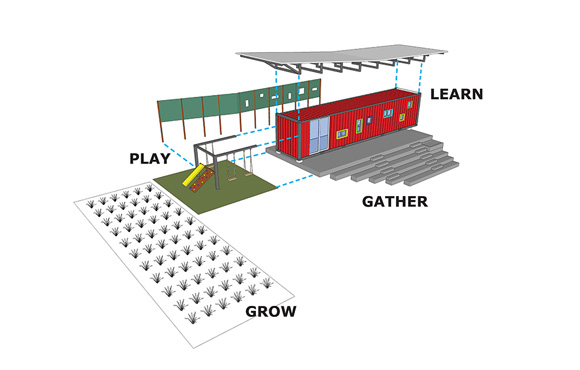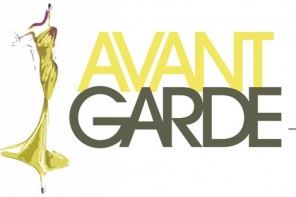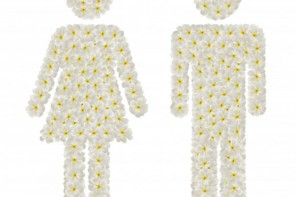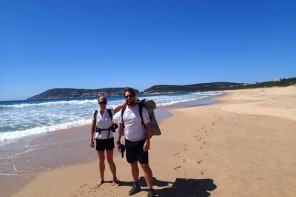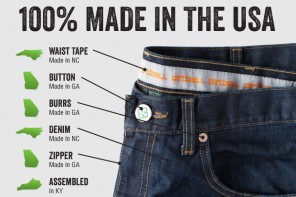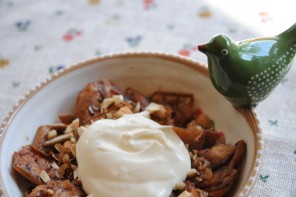Words by Cadine Pillay
The term ‘upcycling’ is often used to describe the conversion of unused items into tools of value that benefit communities. In the case of Copenhagen-based shipping company Safmarine, formed in 1946 in Cape Town, decommissioned shipping containers come in handy with efforts to uplift and improve the quality of education in disadvantaged communities across the country.
Containers became popular as multi-purpose tools in the 1990s, rapidly gaining popularity as cost-effective alternatives for infrastructure such as day care centres, school classrooms and even libraries in some communities. One of the latest innovative transformations of a container is into a sports centre for the community of Piketberg, 120km north of Cape Town in the Western Cape.
The centre – also referred to as “Sport in a box” – forms part of the Containers in the Community initiative, pioneered by Safmarine in 1991. Through the programme the company has donated more than 8 000 containers to more than 3 000 projects, most of them education-orientated, nationally.
A team effort
The sports centre is a collaborative effort between Safmarine, Tsai Design Studio, which designed the facility, and marketing company Star South Fruits. It provides a safe after-school environment for more than 100 children in the area, thanks to the efforts of NGO Stars in their Eyes Foundation, which approached Safmarine.
Stars in their Eyes is run jointly by Dutch fresh produce company Cool Fresh International and the Western Cape’s Department of Cultural Affairs and Sport. Each participating disadvantaged community is twinned with a Dutch football club to give local coaches training in football techniques and life skills, which are then passed on to the youngsters.
“The foundation innovatively combines the joy of football with the alleviation of social problems,” said Johan van Niekerk, marketing director of Star South Fruits.
“The programme was initiated by Freedom Fruit, an international fresh produce brand established by Cool Fresh International.”
Among the centre’s key design elements is a grandstand seating facility for spectators. This runs along one of the container’s long sides and is sheltered by corrugated iron sheeting to provide shade for the audience and the centre. Another innovative element is the advertising space on the opposite side of the container that can be used by local businesses to help generate income for the centre. Alternatively, this space can be converted into a screen for local children to watch movies.
Safmarine has, over the past few years, started working with socially responsive industrial designers to come up with design ideas that are sustainable and environmentally sound.
The current average investment per project is around R500 000 (US $60 500), but this amount will vary according to the size and scale of the project.
Winning design ideas
While Containers in the Community has won numerous shipping industry awards in the past, it has more recently caught the attention of the design community.
‘Sport in a box’ is one of 12 contenders in the running for the 2011/2012 AfriSam/SAIA Award for Sustainable Architecture. The winner will be announced in October 2012.
According to AfriSam, a construction materials company, the awards are aimed at recognising outstanding achievement in sustainable architecture. Their partner in the initiative, SAIA, the South African Institute of Architects, is the industry authority. The awards programme supports SAIA’s goals of recognising and promoting excellence in architecture, and creating public awareness and debate on architectural issues.
“We are delighted that Safmarine’s shipping containers, which spend many years at sea carrying cargo from one end of the globe to the other, are increasingly becoming a source of inspiration for talented architects and designers around the world,” said Safmarine’s Debbie Owen.
“The recent contribution made by the design and architectural community in helping us to creatively and sustainably convert these boxes, has been an important one and recognition – such as with the shortlisting for the Afrisam/SAIA Sustainable Architecture Award – is important as the shipping container, and its contribution to our society, is now being viewed in a more holistic manner.”
Community designers
Besides acquiring the services of talented designers, Containers in the Community also puts the challenge to members of the community. In 2011 Safmarine and food and clothing retailer Woolworths launched a design competition where contestants were required to create a classroom for the grade R pupils of Vissershok Primary School near Durbanville, also in the Western Cape, using a container.
A concept by Marshaan Brink, a pupil at Stellenberg High School, took top honours, and he had the opportunity to work with professional designers and architects and see his idea come to life. Brink was present when the brightly painted classroom was handed over to the pupils.
Containers in the Community projects have also been implemented in Brazil, Zambia, Zimbabwe, Liberia and Tanzania.

